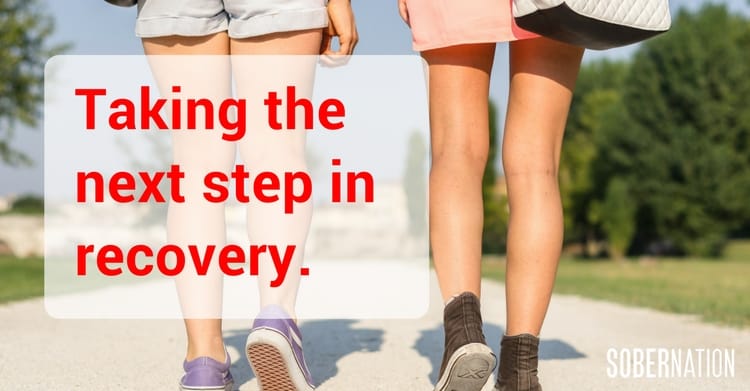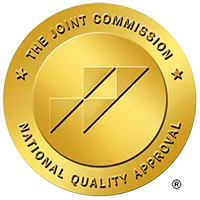What is IOP?
 When inpatient rehab is over, IOP often follows. This stands for “intensive outpatient”. IOP schedules vary, but typically it consists of groups similar to rehab 3 times per week, except after group you go home. These groups help people stay sober by building comradery, a network of addicts and therapists, and an outlet to discuss fear or cravings. Without these groups, it is easy for someone in early recovery to succumb to fear, anxiety, or cravings.
When inpatient rehab is over, IOP often follows. This stands for “intensive outpatient”. IOP schedules vary, but typically it consists of groups similar to rehab 3 times per week, except after group you go home. These groups help people stay sober by building comradery, a network of addicts and therapists, and an outlet to discuss fear or cravings. Without these groups, it is easy for someone in early recovery to succumb to fear, anxiety, or cravings.
When I left rehab I believed I did not need IOP. I felt as if I was cured, but I agreed to do it anyway. I soon realized how important IOP really was. As the stress of the “real world” mounted, the dark thoughts of “how am I going to stay sober” mounted.
I was trying to find a job, going to interviews, and riding my bike everywhere. To a “normal” person this might seem pretty easy, but for someone in recovery from heroin addiction, like myself, it is so easy to use any excuse to get high. In IOP not only could I discuss these cravings, but I would receive support from other fellow addicts, as well as praise for not using and then talking about it.
This helps build self-esteem and confidence because it can be hard to realize that you made the right decisions and should feel good about it! Even when I made good decisions in early recovery, it was easy to have negative thoughts about myself. IOP helped change my perspective and train-of-thought.
Housing During IOP
Another extremely important part of aftercare and my recovery was sober-living. Sober-living is a broad term to describe a sober-home, halfway house, or sober community. There are several avenues you can choose. Sober communities and sober homes are similar to apartment buildings or rented rooms, except everyone in the complex are sober. There are certain rules for the property, and some even drug test. Sober communities, in my opinion, are better later on recovery. Sometimes the freedom and lack of structure of these communities may not adequately support early recovery.
From my experience as well as the experience of my close friends, during IOP the best option is a structured halfway house. Halfway houses often have many rules, chores, and even meetings. Halfway houses also often have a live-in manager to monitor everyone and ensure they are following rules. These houses also usually drug test multiple times per week.
Halfway Houses
As an adult, it can be difficult to live in a community so structured and strict. I was very skeptical at first but also desperately wanted to be sober. Many people told me to take suggestions and do what works for other people. So, I joined an extremely structured halfway house, and surprisingly it was one of the best decisions I have ever made.
Not only did I have support from IOP, I also had the support of my housemates, the house manager, and the house owner. I constantly had an outlet and network of people to get advice from. The temptation was rare because I had so many other new friends who were in the same boat as me. Even over 2 years later, many of my closest friends are those I shared a halfway house with.
The halfway house I attended was strict but also very reasonable. As long as I followed the rules, the longer I was there, the more freedom I got. My curfew would gradually get later and my rent would also get cheaper. I even could get curfew extensions if there was an event, concert, or late dinner I wanted to go to.
What I Learned in A Halfway House
Another thing worth mentioning is meeting new people in early recovery. I stayed in a halfway for several months and as seniors of the house moved out, new faces would move in. I found in recovery that helping people was one of the most significant ways to make myself feel better. When new people would move in I could show them support like I received. I could give them advice, help them find a job, or even share food with them.
These were things that I never cared about before getting sober, but from living in a halfway house community I learned to adopt and enjoy. Talking with newbies would give me a glimpse into the mind I too suffered, which gave me a newfound sense of gratitude.
Ultimately, I am very happy that I followed the structure suggested to me in my first year of recovery. It was hard to humble myself because I was used to living a life on my terms. But I had to be honest with myself and admit that a life that I lived on “my own terms” was not ending up well. I knew I could do better.
This experience taught me very simple but important lessons. Paying my rent, showing up on time, learning how to live with people and communicate. All the little lessons snowballed into a life worth living.
I could not be more grateful.
Original Article re-printed here with permission from SoberNation.com
Red Rock Recovery Center is a Colorado state licensed substance abuse extended care treatment program designed to help you or your loved one recover from the struggles associated with alcoholism and drug addiction. Located in Denver, Colorado we offer a safe haven for those afflicted by the ravages of untreated addiction. Our program is based on a compassionate 12-step model that applies behavioral as well as life skill therapies, which will enable our clients to heal and recover.
#recovery #drugrehab #redrockrecovery




